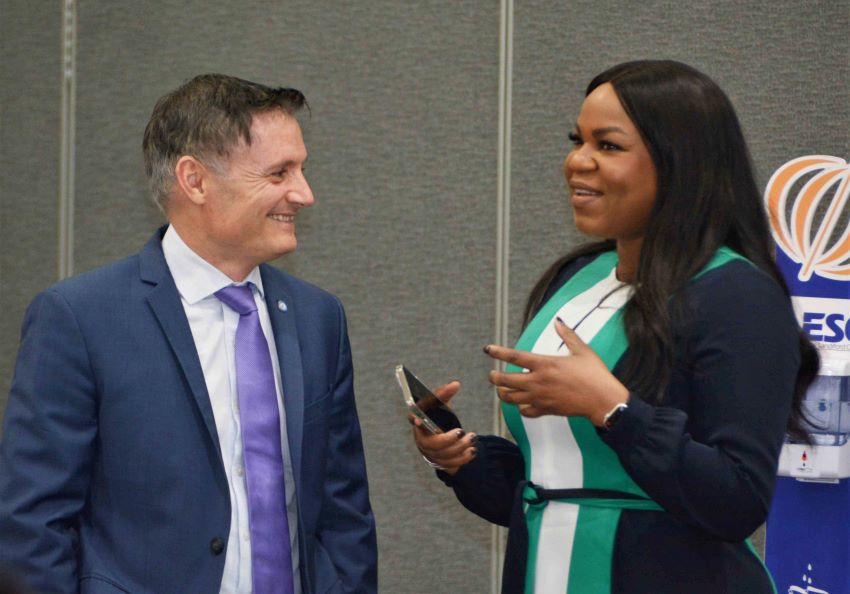
Despite its challenges, Barbados has made great strides in achieving Sustainable Development Goal (SDG) 7 on affordable and clean energy, as well as other SDGs.
This view was expressed today by UN Resident Coordinator, Didier Trebucq, as he addressed the opening of the two-day Energy Transition and Investment Plan (ETIP) Stakeholder Workshop, at the Lloyd Erskine Sandiford Centre. The input from the stakeholder discussions will be fed into the development of the ETIP.
Mr. Trebucq noted that the ETIP would form the foundation of next steps to achieve SDG7 on ensuring access to affordable, reliable, sustainable energy, and contribute to SDG 13 on Climate Action.
He noted that after the 2015 Paris Agreement to limit global warming, the Barbados Government ratified its Nationally Determined Contributions with solid targets. He continued: “I must commend the Government on this swift and decisive action, reflecting the growing urgency to protect the economy from energy market volatility. In the long run, this will protect the fragile environment and ecosystems, which are already highly vulnerable to climate-related disasters. Such commitment is transformative, even evident in the widespread use of solar water heaters island wide.
“Recognising the commendable efforts of the Barbados Government, it is important to highlight the long road ahead. Barbados currently relies heavily on fossil fuel imports…. This dependency has far-reaching consequences for achieving all SDGs.”
During her address, Chief Executive Officer of Sustainable Energy For All (SEforALL), Damilola Ogunbiyi, who is also the Special Representative of the UN Secretary-General for Sustainable Energy for All and Co-chair of UN-Energy, said transitioning from fossil fuels to renewable energy and energy efficiency sources was the right thing to do environmentally, and was needed economically.
Ms. Ogunbiyi explained that the ETIP would outline a roadmap for transitioning all economic sectors of Barbados towards a net-zero future, identify the technologies required and assess the investment needs and macroeconomic benefits of such a shift.
In addition, she pointed out that a comprehensive ETIP would be crucial in mobilising much-needed development and private finance from the international community, and engaging with the private sector to address a number of barriers.
According to Ms. Ogunbiyi, the ETIP is a tool to scale-up investment opportunities towards an ambitious energy transition outlook. She noted that SEforALL had recently implemented a similar initiative in Nigeria, where the Energy Transition Plan had been launched.
